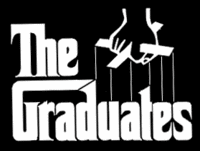
Not all creative writing graduate programs are the same. Looking at a program's requirements can indicate much about the focus and intention of the degree. Requirements vary, but generally they will include writing workshops, craft classes, literature classes, electives, and a book-length thesis. Some programs require proficiency in a secondary language, others require a defense of the thesis before a committee, and others require a reading list and graduate exam. I’ll address the three types of degrees here in very general terms:
M.A. degree – Master of Arts. One to two years. Six to twelve classes. About a 1:3 ratio between writing workshops and literature classes. A master’s exam on a specific reading list is almost always required, as is a final creative thesis. A secondary language proficiency is often required. Most M.A. degrees concentrate on the study of literature first, and the crafting of writing second, so it’s an appropriate degree for students who want to immerse themselves in literature but who still want to write creatively.
M.F.A. degree – Master of Fine Arts. Two to three years. Eight to sixteen classes. Four writing workshops are almost always required, as are about an equal number of literature courses. Many programs offer classes in the craft of writing, and other programs encourage students to take electives in other departments such as art, psychology, history and others. A creative thesis (book-length) is always required. A secondary language and a master’s exam in literature may be required, but not often. This is an appropriate degree for students who wish to focus primarily on their own writing, with secondary emphasis on literature and other classes.
Ph.D. degree – Doctor of Philosophy. Five or more years. Ten to eighteen classes. Two advanced exams (one written, one oral) related to reading lists are normally required, as is a secondary language proficiency, and a final creative dissertation and its defense. Generally speaking, this is a Ph.D. degree in English with a secondary emphasis in creative writing. Many Ph.D. programs will accept credits that students earned during their M.A. or MFA study. This is an appropriate degree for students who want to study literature at an advanced, intensive level, and who wish to work on their own writing for some of that time.
So, do these requirements vary from program to program? Yes, very much so. Some MFA degrees in creative writing may actually lean more toward the literature side, as opposed to the creative writing side. Meanwhile, there are some Ph.D. and M.A. programs that concentrate primarily on writing. The bottom line: A program’s list of requirements and classes will give you a clear sense of the emphasis of the degree.
I’ll give you a rule of thumb: Something close to a 1:1 or 1:2 ratio of writing workshops and literature classes is a program concentrating on creative writing. Something closer to a 1:3 ratio or higher is a program concentrating in literature.
Keep in mind that programs which offer a fair number of electives (two or more) offer students the best flexibility, because students can choose their own concentration: literature, writing classes, or classes outside the English department.
As an example, let’s take a quick trip to the University of Michigan’s website. It’s available at http://www.lsa.umich.edu/english/grad/mfa/
The University of Michigan is a two-year MFA program in fiction or poetry. The program is 36 degree hours, and in this case that means four workshops, four literature classes, plus thesis hours (work toward your book-length manuscript). The website indicates that there is some flexibility in changing one literature class to a class outside the department. A secondary language proficiency is required, as is a final thesis.
My conclusion, therefore, (based on the 1:1 ratio) is that the program concentrates primarily on the writing aspect, as opposed to primarily on the literature aspect. As an aside, I like the flexibility that the program offers in choosing your classes.
Finally, I know some people are reading this and saying "Wait a minute, there are craft classes also, and they don't fit easily into one category or the other." Right. And more on that next week.
No comments:
Post a Comment